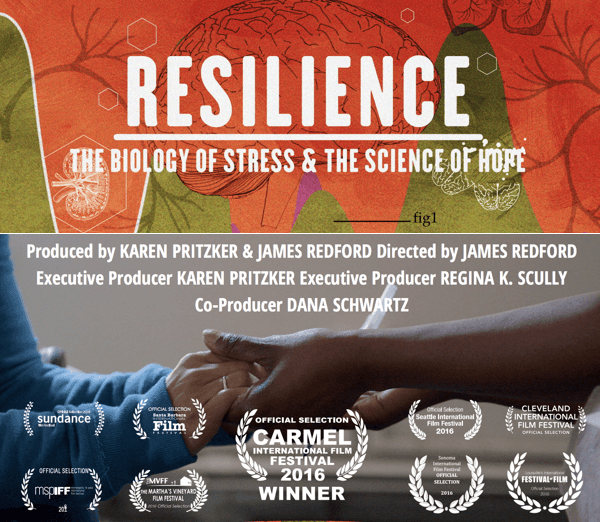Parent and Educator Resources A-H
A
AHISA Association of Heads of Independent Schools Australia
APC Australian Parents Council
AHISA Association of Heads of Independent Schools Australia
AISACT Association of Independent Schools ACT
AISNSW Association of Independent Schools NSW
AISNT Association of Independent Schools NT
AISSA Association of Independent Schools SA
AISWA Association of Independent Schools WA
AITSL Australian Institute for Teaching and School Leadership
APC Australian Parents Council
APFACTS The Association of Parents and Friends of ACT Schools Inc.
ARACY Australian Research Alliance for Children and Youth
Authentic Parent Voice
Authentic Parent Voice (APV) is a collaboration with VPC.
We are seeking new ways to activate, empower and encourage parent engagement in all aspects of their children’s education. School is one component of the education whole which is strengthened through authentic parent engagement. Parents and families are the significant factor in the holistic education of children.
As part of the Victorian Parents Council collaboration with Authentic Parent Voice, VPC offers VPC school partners and collaborators, the following discounted APV workshops. Contact VPC for more information.
▶ Difficult Conversations and How to Have Them
▶ Parent Engagement: Changing mindsets to engage families in educational partnership
▶ Making the most of Collaborative Planning
▶ Making Data Accessible
▶ Transitions “Preparing for Launch”
▶ Solution Focused Conversations in Home-School Communication
B
C
Choosing a School
How as parents do we decide on the right school for our child, particularly if you are considering the tremendous diversity of choice available within the non-government school sector? It’s not simply a question of locating the closest school to home – there is a whole barrage of issues to be considered.
The one topic we are all experts on is our children. You know better than anyone your child’s strengths and weaknesses, interests and abilities. You know if they will thrive in a large school or feel more secure in a smaller setting. You know if they will feel safer close to home or will find it an adventure to travel further afield. And you will know whether a single-sex or coeducational setting is best for them.
Parents are the primary educators of their children, and the more they are involved in their children’s school, the greater the chances of success for that child socially and academically. So if you are a person who really wants to be involved at school whether as a volunteer in the classroom or tuckshop, or as a member of the school’s governing body, make sure those opportunities are open to you.
Your choice may be easier if you are seeking a school which supports your family’s religious beliefs and cultural associations. Or you may be committed to a particular educational philosophy. Conversely, you may be attracted to a school for a number of reasons but be unwilling to abide by its beliefs. This is to be avoided at all costs! Children flourish in an atmosphere of cooperation between school and parent. There is no point in sending them to a school whose values you do not respect.
How much time are you willing to spend travelling? Are you willing to drive some distance from home or would you prefer a school which is part of your local community? Does the school offer small class sizes, a variety of extra-curricular activities such as camps, sport, drama and music, remedial and extension classes? Does your child have special needs that will require extra commitment from a school? Remember, children with disabilities receive much lower levels of government assistance in the non-government sector than they do at government schools so this may influence your decision.
And in practical terms, in the non-government school sector, there is no getting away from fees. Fees can range from around $1000.00 to over $15,000.00 per annum, and don’t include the associated costs of uniforms, books etc.
Feeling exhausted, not to mention confused?
Well, Open Days are a wonderful way to see a school in action and to gain a sense of what it may offer your child. Ask for an interview with the principal or registrar and for copies of school policies. Observe how students interact with teachers and other members of the school community. Does it seem a happy place? Look at its buildings and other resources. Speak to a range of families already attending the school – keeping in mind that one family’s experiences may not be representative. And it is possible to seek guidance from educational psychologists and other specialists who are familiar with a range of schools.
But most importantly, don’t leave it too late! Many non-government schools have waiting lists, even at primary levels. It also helps schools if you enroll as soon as possible as it enables them to prepare for the following year in terms of classrooms and teachers needed.
Have confidence in your knowledge of your child and your ability to know what is best for them and for your family. You are sending them off on the adventure of a lifetime, and best of all, you get to go along too!
CONSIDERATIONS WHEN CHOOSING A SCHOOL
You must always ask yourself what suits your child and your family. If you and school are at loggerheads, your child will be the loser.
Make a list that considers the following:
1. PRACTICAL CONSIDERATIONS
- Location
- Is it close to home? Do you want your child to be able to walk or easily take public transport or school bus?
- Will their friends live nearby or in a range of different suburbs?
- How much time are you willing to spend driving to after-school activities?
- Do you need before and after school care and holiday programs?
- Is Saturday sport compulsory?
- How up to date are the facilities?
- Is there a compulsory uniform?
- Is it a Kinder-12 school and is it all on one campus?
- Is there a compulsory laptop program and what does this cost?
2. PHILOSOPHICAL CONSIDERATIONS
- Would you prefer a large or small school?
- Do you want your child to attend the same school for all of their education?
- Would you prefer a single-sex or co-educational school?
- Do you want a traditional curriculum or are you after, for example, Steiner or Montessori programs?
- Does it offer Vocational Educational Training (VET) courses or International Baccalaureate?
- Does it offer acceleration and university enhancement courses?
- What foreign language does it offer?
- Does it encourage or expect parent involvement in the classroom or in the running of the school?
- Do you agree with the religious/philosophical affiliation of the school and will your child be happy to abide by these beliefs – e.g. compulsory religious education classes?
- Is there a compulsory outdoor education program that may involve your child being away from home for a considerable period?
3. EXTRA-CURRICULAR CONSIDERATIONS
- What sort of sporting, music, drama, and art etc. opportunities does it offer?
4. PRIMARY SCHOOLS
- What are the early learning programs like?
- How are children taught to behave, work with each other etc.?
- How are they supervised in the playground and on excursions?
- Can you help out in the classroom?
- Is there a parent association you can join?
5. SECONDARY SCHOOLS
- What is the curriculum range? Does it offer VCAL?
- What are the expectations regarding student involvement in sport, music and drama etc.?
- What are the uniform, behaviour and discipline expectations?
- Are there school camps and/or overseas campuses?
6. OTHER CONSIDERATIONS
- Are you looking for specific support for disabilities or special needs?
- Are there counsellors or welfare officers? Does the school offer education in drug and alcohol abuse, sex education, mental and emotional health?
- What is your budget? Remember that expenses on top of school fees can include uniform, textbooks, sports equipment, laptops, camps, excursions, music lessons and instrument hire
- You may want to take into account NAPLAN and VCE results, but don’t rely solely on these: there is a lot more to successful education than VCE results
Once you have completed your lists you can decide what you are not happy to compromise on and what questions you need to ask when you visit a school.
Knowing the questions to ask, and being confident in your knowledge of your child’s needs, will make the job of choosing a school much easier. Independent schools offer your child the chance to embark on an exciting adventure of education, and for parents the pleasure of seeing their child achieving their full potential.
D
DET Department of Education and Training
E
ESA Education Services Australia
Every Chance to Dance
A breakthrough Curriculum Resource for Primary Teachers
EVERY CHANCE TO DANCE is a breakthrough curriculum resource for primary teachers, an online movement education resource aligned to the Australian Curriculum.
Every Chance to Dance supports teachers to provide a fun, practical and high-quality learning experience for primary aged students, to help meet dance, health and physical curriculum outcomes.
At the click of a button, Every Chance to Dance is a way for teachers to easily accommodate any gap in professional expertise and reduce their workload. Every Chance to Dance actively engages students in new ways to develop their movement skills and improve their overall health and well-being.
VPC offers great discounts for any school via VPC membership, in Australia and globally.
VPC partner schools, non-government schools in Victoria will enjoy an even greater discount. Any VPC individual teacher’s membership gives you a discounted price to use the program* (conditions apply).
More information at The Every Chance to Dance website.
▶ HPE Curriculum Table
▶ Years 1 and 2 HPE Curriculum Table
▶ Years 3 and 4 HPE Curriculum Table
▶ Years 5 and 6 HPE Curriculum Table
F
FCSPC The Federation of Catholic School Parent Communities Inc.
FDYA Foundation for Young Australians
FSCPB Family –School and Community Partnerships Bureau
G
Grandparents Australia/Kinship Carers
H
The Hope Project

In collaboration with VPC, The Hope Project Screening Documentary RESILIENCE is a one-hour Award winning documentary that delves into the science of Adverse Childhood with over 30,000 community screenings across the USA, RESILIENCE is one of the most essential documentaries of the past decade.
This incredible documentary directed by James Redford (son of Robert Redford) delves into the science of ACEs (Adverse Childhood Experiences study) and a movement in the USA to treat and prevent Toxic Stress. Understanding this vital information informs outcomes from a public health perspective and impacts on many things from heart disease cancer to substance abuse, depression and behaviour.
Host a screening of Documentary RESILIENCE.
Book TEDx Canberra speaker Kate Seselja – Founder of the Hope Project.
